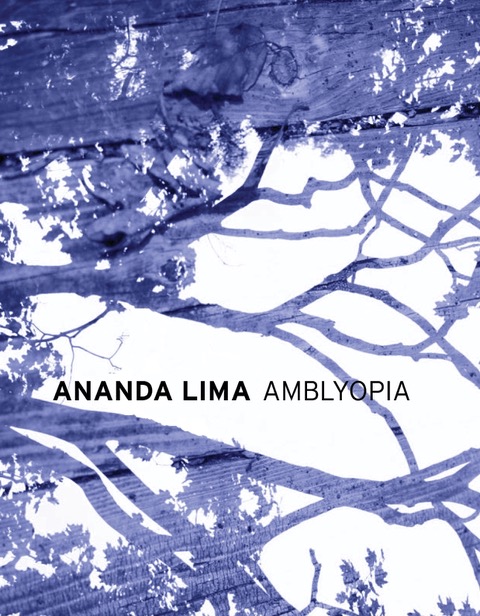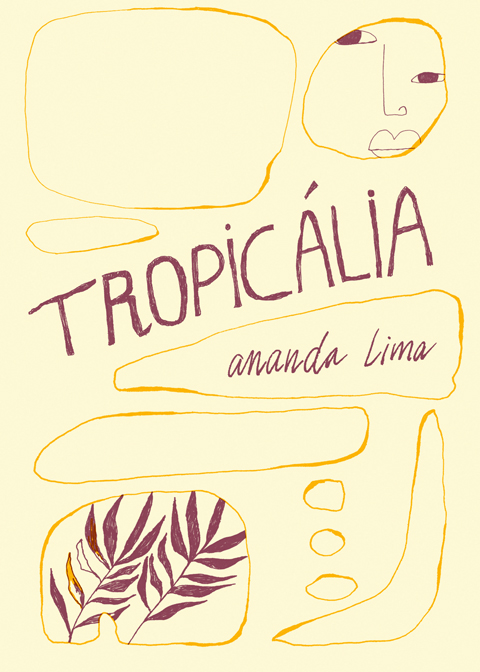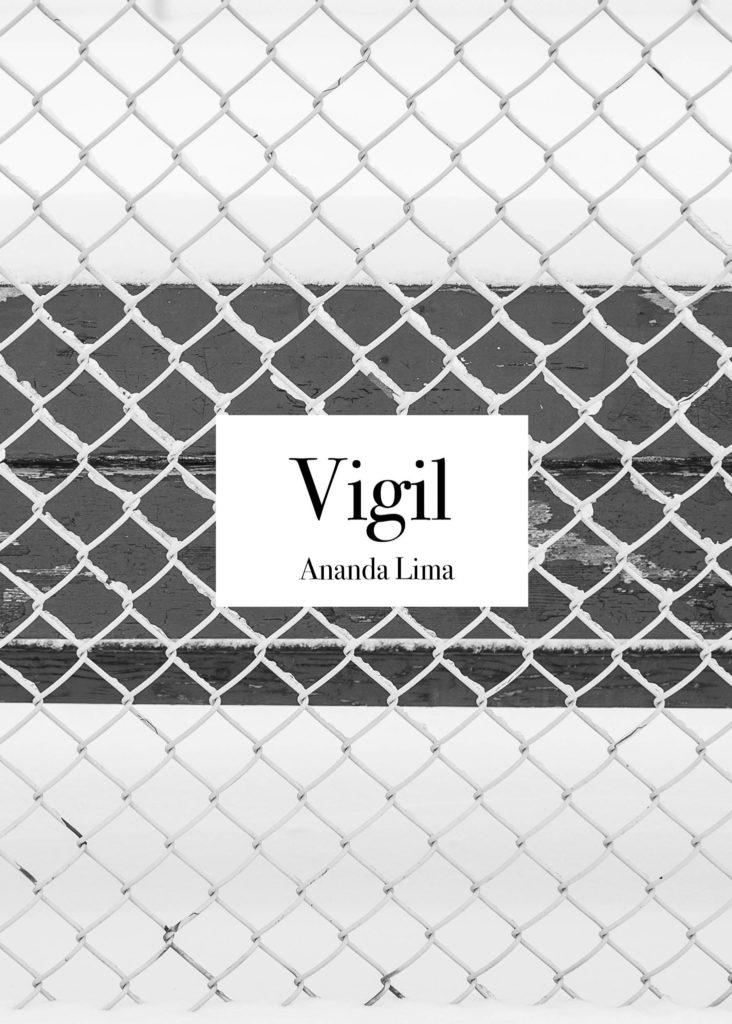 Amblyopia (Bull City Press, 2020)
Amblyopia (Bull City Press, 2020)
Poetry micro-chapbook (available here)
Struggles with sight inspire an expansion of vision in Amblyopia, Ananda Lima’s micro-chapbook of poems that span senses, borders, and generations. “[M]y condition a pastel tinged party trick / watch me get lost in my vapor watch me / get by until it thickens into clouds / condenses down into my son’s eyes,” the speaker says, describing the titular visual disorder as it is passed through the family. As formally astounding as it is emotionally tender, Amblyopia explores themes of inheritance and motherhood, language and migration, translation and assimilation, and more, inviting readers to consider more deeply, When, why, and how did you learn to “see”?
“Amblyopia is an 18-page experiment that contains 13 miniature experiments, each unique in form or style, though all solidly linked to four woven thematic threads—photography, disability, motherhood, and the ineffability of language itself. […] From the first poem, which stretches and fades (literally) from English into Portuguese, it is clear there is something special about this book; but as I read, each succeeding poem continued to surprise and (beautifully) befuddle me. ” — Tyler Barton for The Common
“In addition to their poor sight, a perfectly sustained metaphor throughout, readers also catch glimpses of a former culture, a former country, and a former life disappearing for our speaker. The poems skein through Portuguese and English, attempting to tether this disconnect. […] “Seeing less than others / can be a great strain” Robert Lowell once wrote of myopia. Lima reappropriates that strain into a physical moving poetic experience.” —Abriana Jetté for Stay Thirsty Magazine
“No element of perception is spared by our thoughtful, inquisitive speaker. Language too, and the meaning of words, is called into question again and again. […] To see the world through another’s eyes is not just an intellectual or aesthetic experience, but a muscular one. Throughout the collection, the formal inventiveness of these poems embodies this muscularity.” —Megan Pinto for EcoTheo Review
“Lima returns to the boundaries between mother and child—what a mother can give her child and what she cannot, or how children can break away from their mothers and come into their own identities.” —Shari Astalos for Pleiades

Tropicália (Newfound, 2021).
Fiction chapbook, winner of the Newfound Prose Prize (limited print run, last copies)
The characters of this lyrical collection fight for their human needs in absurd circumstances. Spun from 1980s America comedic horror, Carmen Miranda, and the thin metallic plastic of emergency blankets, Tropicália reengages with 20th-century Brazilian art movements (Antropofagia and Tropicalism) from within 21st-century USA. The collection portrays the rich inner worlds of characters who cannot ignore how systemic forces shape their belonging, grief, and love.
“Smart. Funny. Weird. Bilingual. Timely as hell. Political. Brave. I absolutely loved the pacing, clarity, economy of language, and wild imagination. The way she engages with current events and popular culture in such a reduced space is brilliant.” —Gabino Iglesias
“Balancing absurdity, satire, and heart, Lima’s stories are delightfully weird and entertaining, but something ugly, haunting, and important lurks beneath, consuming her protagonists, and, in turn, her readers: the horror of what it means to belong, or not, in America.”—Necessary Fiction
“Lima’s book demands to be read as America finds itself at a crossroads that will shape the country for generations. For everyone who knows or is an immigrant and the anti-immigration policies of America, ‘Tropicália’ is a lyrical collection that will resonate for years to come.”—EcoTheo

Vigil (Get Fresh Press, 2021).
Poetry and photography e-chapbook. Available here.
Vigil is a meditation on motherhood, safety, danger, violence, and the state. Between the poetic lines are the hidden and the unsaid, and the beautiful and ugly present. These poems share space with Lima’s intriguing and evocative photography. Together, image and poem open our consideration of the world we live in and the world we’re leaving our children.

Translation (Paper Nautilus, 2019).
Poetry chapbook, winner of the Vella Chapbook Prize. (available here)
“Lá na Bahia or on the 7 train, Ananda Lima’s poems house a stillness that moves gracefully on the page. Translation is altruistic in its soft haunt, its fleshly reminder that our daily self-discoveries are just the bones of ancestors waking for attention. The collection is a sun of moments gathered to greet us when and, wherever we may land after a long day of feeling like “other.” ” —Shauna Barbosa